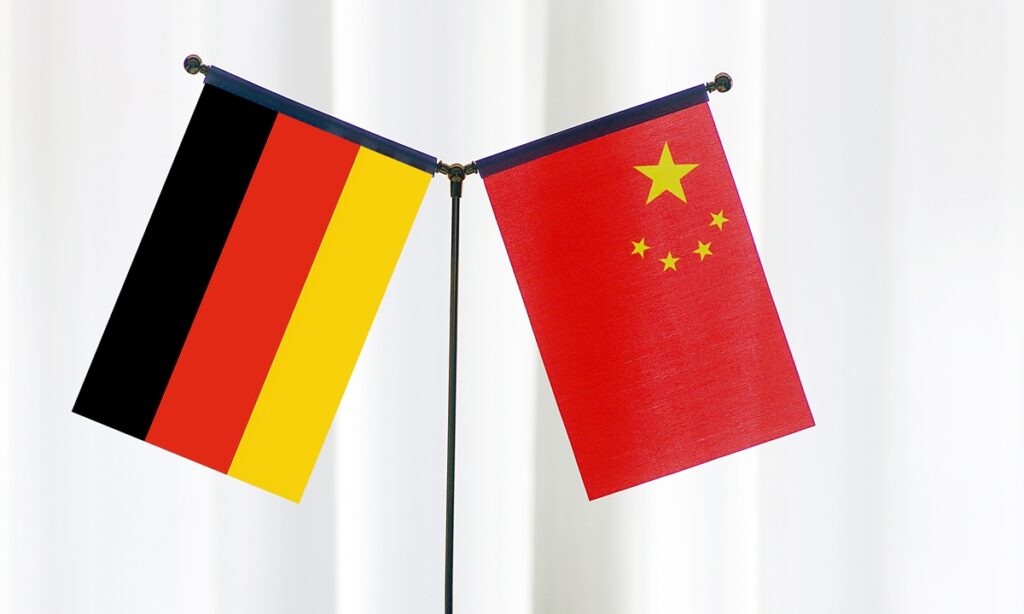Chinese experts have criticized Germany’s decision to cease granting promotional loans to China and deny China’s developing country status, calling it a move that succumbs to pressure from the US’ cold-war mentality toward China. They warn that Germany risks undermining its own economic interests and damaging the investment confidence of European enterprises in China.
Germany will no longer grant promotional loans to China from 2026 and no longer treat China as a developing country, the Federal Development Ministry (BMZ) confirmed on Tuesday.
The German ministry said it has informed the Chinese Ministry of Finance in mid-September of the federal government’s decision to permanently stop granting promotional loans to China, Reuters reported.
“We are no longer treating China as a developing country,” German Development Minister Svenja Schulze said. “China is and remains an important partner, without whom we cannot successfully overcome global crises,” she added.
The move reflects some German politicians’ alignment with the US in strengthening “decoupling” from China and creating economic and trade barriers aimed at the country, Chen Jia, an independent analyst on global strategy, told the Global Times on Wednesday.
Under this Cold War mentality, Germany’s push to implement a decoupling policy is not beneficial to EU-China cooperation, Chen noted.
Song Wei, a professor at the School of International Relations and Diplomacy at Beijing Foreign Studies University, said Germany’s decision to cease granting promotional loans to China and deny China’s developing country status was primarily influenced by US attempts to strip China of its developing country status.
For some time, the US has attempted to deprive China of its developing country status, which has been slammed by Chinese officials.
China’s status as the world’s largest developing country is rooted in facts and international law. It’s not up to the US to decide whether China is a developing country, Chinese Foreign Ministry Spokesperson Wang Wenbin said at a press conference in June.
China’s status as a developing country is supported by concrete facts. China’s per capita GDP in 2022 was $12,741, or one-fifth of that of advanced economies and only one-sixth that of the US.
The move by Germany will create an atmosphere of uncertainty, hinder the growth of bilateral trade and investment, and dampen the investment confidence of European business in China, experts said.
China and EU just concluded productive talks during the 10th High-level Economic and Trade Dialogue, with the two sides reaching multiple consensuses, China’s Ministry of Commerce said in a statement on Tuesday.
Both sides agreed to further promote the two-way opening of the financial industry and encourage eligible financial institutions to invest and expand their business in each other’s markets.
In the context of a global economic downturn, Germany’s cancellation of promotional loans will dampen the investment confidence and expectations of European enterprises in the Chinese market, which is not conducive to the deepening economic and trade cooperation between China and Europe, Song said.
From 2013 to 2022, promotional loans with a total volume of 3.451 billion euros ($3.62 billion) were agreed upon with China. No promotional loans were granted in 2023, according to the Reuters report.
Cui Hongjian, a professor with the Academy of Regional and Global Governance with Beijing Foreign Studies University, told the Global Times that these loans primarily support projects related to infrastructure, climate change, environmental protection, and sustainable development. The advantage lies in their relatively fixed and extendable repayment period, as well as the relatively favorable interest rates compared to market rates.
Cui said that in the future, there may be a shift toward more commercial cooperation rather than policy-driven projects. Additionally, this change may not have a significant impact on large-scale projects, as the Chinese side has sufficient financial capacity for investment, Cui said.
(Global Times)




